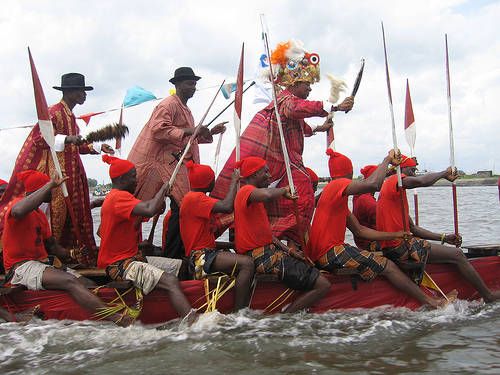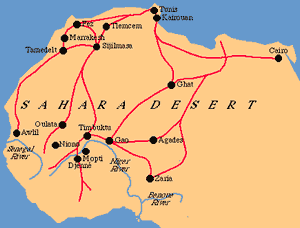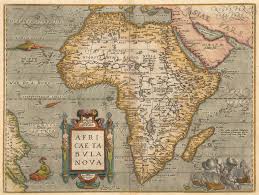The History and Culture of the Ijaw People of the Niger Delta

The History and Culture of the Ijaw People of the Niger Delta
Explore the rich history, vibrant culture, enduring traditions, and unique way of life of the Ijaw people, one of Nigeria’s oldest and most resilient ethnic groups.
The Ijaw people, one of Nigeria’s oldest and most culturally rich ethnic groups, inhabit the low-lying coastal regions of the Niger Delta. Spread across Bayelsa, Rivers, Delta, and parts of Ondo and Akwa Ibom States, the Ijaw have built a civilization deeply interwoven with rivers, creeks, and the Atlantic coast. Their history, culture, and societal structure offer a compelling insight into one of Africa’s most resilient and water-bound communities.
Origin and Early Settlement
The origin of the Ijaw people is steeped in oral tradition and myth. According to Ijaw oral history, their progenitor, Keni-Otu, was divinely led to the watery regions of the Niger Delta. Many scholars agree that the Ijaw are among the earliest inhabitants of the area, possibly migrating from central Africa thousands of years ago. Their presence in the Niger Delta predates many of the more dominant migrations into southern Nigeria.
Some Ijaw clans trace their lineage to a mystical land called Wonyoma, believed to be their ancestral homeland. Others associate their roots with migrations from Benin or interactions with ancient empires like Ife and Oyo. Despite the lack of archaeological certainty, the antiquity of Ijaw presence in the delta is undeniable.
Early Ijaw communities settled along creeks and rivers, utilizing canoes as their primary mode of transportation. Their villages often rested on stilts or elevated patches of land known as kiri, safe from the seasonal floods. This strategic placement allowed them to master fishing, boat-making, and salt production, giving rise to a self-sufficient, water-based society.
Language and Dialects
The Ijaw speak Ijaw languages, which belong to the Niger-Congo language family. There are over 30 dialects, with the most widely spoken being Izon and Kalabari. Other dialects include Nembe, Okrika, Mein, and Egbema.
Language plays a critical role in preserving Ijaw identity, and many communities proudly uphold their dialects, even when surrounded by dominant ethnic groups like the Yoruba or Igbo. Each dialect reflects a unique history and migration path, contributing to the diversity within the Ijaw unity.
Cultural Life and Identity
Culture among the Ijaw is vibrant and reflective of their environment. Their artistic expressions, particularly in music, dance, and masquerade, are tied to spiritual beliefs and community identity. Traditional musical instruments include drums, flutes, and gongs, often used during festivals or ceremonies.
Ijaw attire is also distinctive. Men often wear George wrappers, a richly embroidered cloth, with shirts and bowler hats, a colonial influence turned into cultural identity. Women wear colorful wrappers, matching blouses, and beaded jewelry. Hair plaiting and body markings (scarification) were once common as signs of beauty or family lineage.
Marriage Customs
Marriage in Ijaw culture is a deeply communal and symbolic affair. Traditionally, there are two phases:
- Payment of bride price (Iya or Tuwo): The groom’s family presents gifts such as money, drinks, clothing, and food items to the bride’s family.
- Traditional rites: Rituals are performed to join both families spiritually. Libations may be poured to honor ancestors, and the bride is symbolically handed over to the groom.
Polygamy was once common, especially among chiefs and wealthy men. Today, while monogamy is more prevalent, traditional values around kinship and community approval still guide most marriages.
Cuisine and Daily Life
Ijaw cuisine is renowned for its richness in seafood, a reflection of their aquatic environment. Common ingredients include fish, crayfish, periwinkle, prawn, plantain, cassava, and pepper.
Signature dishes:
- Banga soup (made from palm fruit and seafood)
- Fisherman soup (richly spiced with various sea creatures)
- Plantain porridge
- Ukodo (yam pepper soup)
Food is often served communally, and mealtime is an important bonding moment in Ijaw homes.
Spiritual Beliefs and Religion
The Ijaw traditional religion is rooted in ancestor worship, spiritual guardians, and nature deities. Central to their belief is Egbesu, the god of justice and war, revered particularly by warriors and defenders of justice.
Other key deities include:
- Woyingi – a female creator spirit
- Pere – spirits that govern rivers and lands
The Egbesu cult was central to social order, functioning like a spiritual court system. It could pronounce judgments and sanction warriors to defend the community.
With the arrival of Christianity, many Ijaw converted, especially to Anglicanism and Catholicism, but traditional practices persist, often syncretized with Christian worship.
Traditional Governance and Leadership
Ijaw society is organized into clans and kingdoms, each headed by a traditional ruler or Amananaowei. These leaders, often chosen from royal lineages, play spiritual, judicial, and administrative roles.
Some notable Ijaw kingdoms include:
- Nembe Kingdom
- Bonny Kingdom
- Opobo Kingdom (closely related)
- Gbaramatu
These kingdoms had long-standing diplomatic relationships, trade pacts, and even conflict resolution systems, predating colonial governance.
Festivals and Ceremonies
Ijaw festivals celebrate spiritual heritage, agricultural cycles, and historical milestones. They often feature masquerade displays, boat regattas, music, and dance.
Famous festivals:
- Nembe Festival – honors ancestors and celebrates the town’s heritage
- Okpo Masquerade Festival – involves elaborate masked spirits
- Boat Regattas – colorful and competitive canoe displays
These events are not just entertainment; they reaffirm community bonds and preserve Ijaw identity.
The Ijaw and the Niger Delta Struggle
In modern history, the Ijaw have been central to the resource control movement in the Niger Delta. Given that much of Nigeria’s crude oil comes from Ijaw land, yet the region suffers environmental degradation and underdevelopment, activists like Isaac Adaka Boro and later Asari Dokubo rose to challenge state neglect.
The Niger Delta Militancy of the 2000s, while controversial, drew global attention to the plight of the Ijaw and other ethnic minorities in the oil-rich region.
Contributions to Nigeria and Africa
The Ijaw people have made profound contributions across sectors:
- Music: Timaya, Burna Boy (Ijaw maternal roots)
- Politics: Former President Goodluck Jonathan hails from Ogbia, an Ijaw subgroup
- Academia: Ijaw scholars have contributed to Nigerian education and linguistic preservation
Challenges and Preservation of Identity
Despite their achievements, the Ijaw face challenges:
- Environmental pollution from oil spills
- Erosion of traditional culture due to urbanization
- Underrepresentation in national narratives
Efforts are ongoing to preserve their language, document oral histories, and promote Ijaw culture through literature, film, and festivals.
Conclusion
The Ijaw are more than just inhabitants of creeks and rivers; they are custodians of a resilient legacy shaped by water, trade, resistance, and deep cultural pride. As Nigeria evolves, telling the full story of the Ijaw is crucial to appreciating the rich tapestry that makes up the nation.
In amplifying their voices, traditions, and contributions, we uphold the dignity of one of Africa’s most intriguing and enduring ethnic groups.


